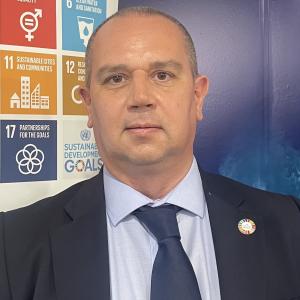Jamaica’s Social Protection Safety Nets Holding after COVID-19
20 March 2023
Today, the Jamaican Economy Panel (JEP) publishes its seventeenth discussion.
In this discussion, the JEP was asked about the social security implemented during the COVID-19 pandemic and how we are continuing to deal with the long-term effects.
As an economy with a significant reliance on the tourist industry, estimated to be around 20 per cent of GDP, the restrictions on travel were detrimental to most Jamaicans working in the sector. Restrictions in global travel and border closures caused visitor arrivals to decline by almost 70 per cent causing widespread job losses across the sector.
Dr. Nadine McLoud, Head, Department of Economics, University of the West Indies Mona stated that, “The needs of our most socioeconomically vulnerable are heterogeneous and numerous. Yet, the government and private sector can strategically join forces and leverage resources to yield long-lasting socioeconomic gains. For example, by using multiple social protection instruments - including microfinance provision - in a targeted manner, our society can ensure that Jamaica’s most challenged groups monetize their skill set to help chart their social and economic development.”
Panellists were asked for their views on social protection in Jamaica before the outbreak of COVID-19 and its capabilities to adapt to the increased needs that were caused by the pandemic. Many panellists felt that the social protection already in place was relatively capable of dealing with the heightened demand. One panellist highlighted the success of the CARE programme whilst also emphasising the challenges Jamaica’s informal sector still poses in ensuring inclusive social protection measures. The panellists identified informal workers and persons with disabilities as the two groups that received the least support. In the aforementioned UNDP report, Manuel Mera explained why the number of informal workers remains so high due to the contributory structure in Jamaica which acts “as the potential barrier to formality and the cross-subsidy as an incentive to remain informal.”
Responding to the survey results, Mr. Vincent Sweeney, United Nations Resident Coordinator a.i., agreed that “establishing and maintaining robust social protection mechanisms ensures that Jamaica is striving to achieve its Vision 2030 and SDG targets.” He emphasised that “it is imperative that the United Nations works to support the government in enhancing its social protection measures, ensuring that inequalities are reduced and that no one is left behind.”
The pandemic has highlighted some of the preparedness areas that need addressing before the next shock inevitably hits. This should be done through enhanced social protection measures and a move towards a more digital society.
The Jamaican Economy Panel is part of a partnership between the United Nations Resident Coordinator’s Office (UNRCO) and the Department of Economics at the University of the West Indies (UWI) Mona. The JEP brings together a select group of economic and public sector experts to address monthly socio-economic questions. These questions help to highlight relevant economic issues and the collective expertise of the panellists.
For more information on the Jamaican Economy Panel and for the results of this JEP discussion visit here: https://jamaica.un.org/en/223975-jamaican-economy-panel-discussion-social-protection

Ciara Patterson

Dr. Nadine McCloud








